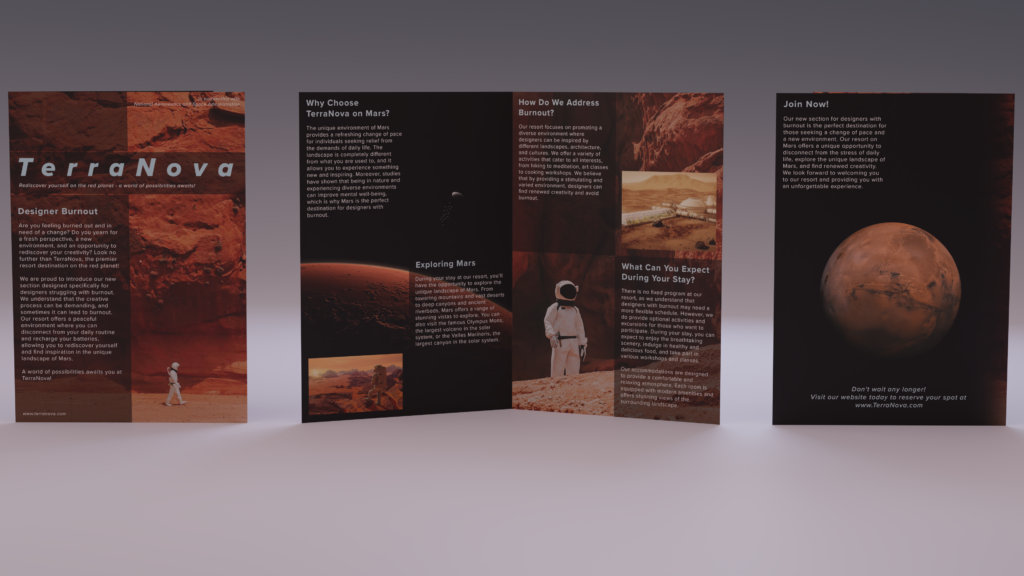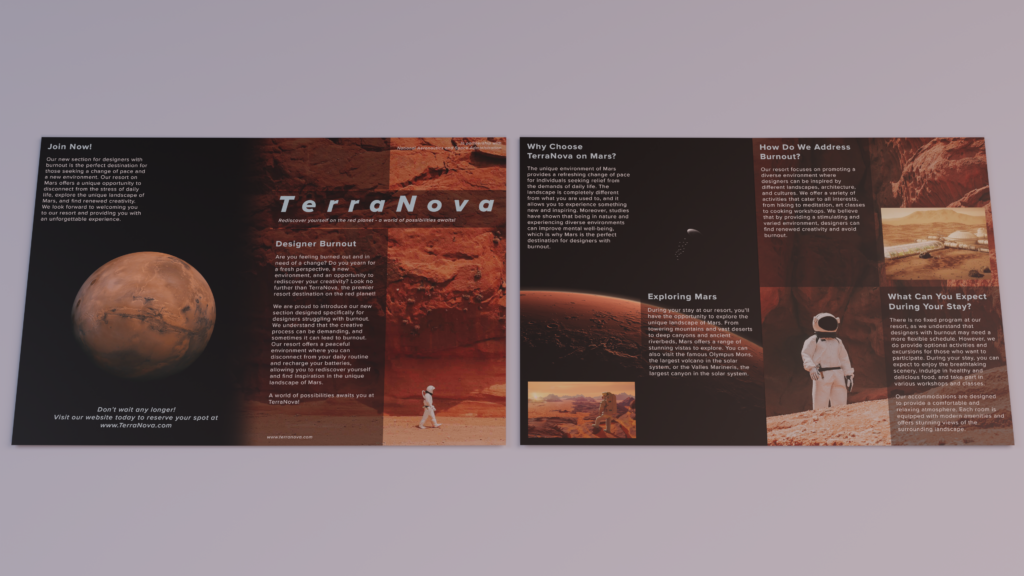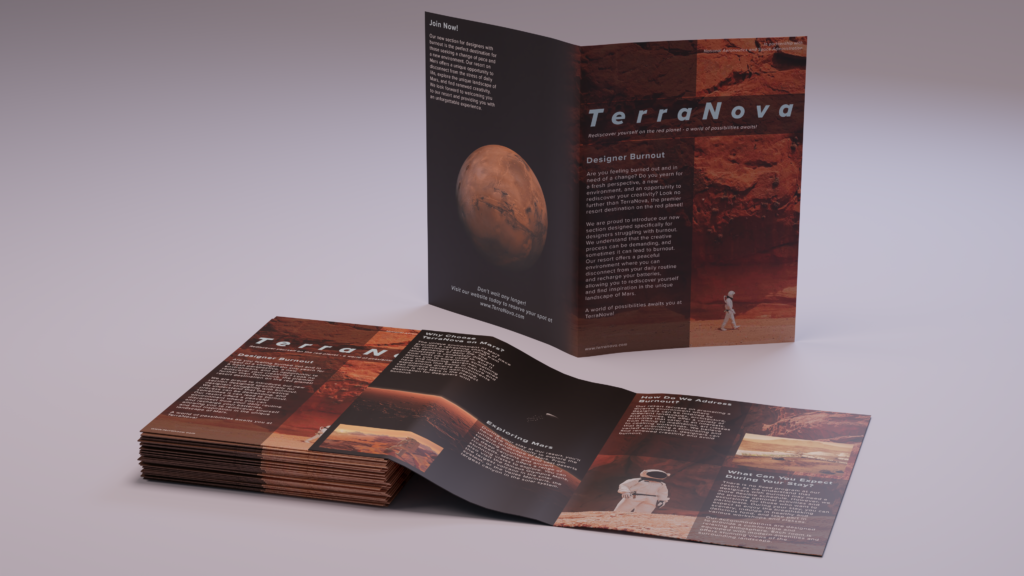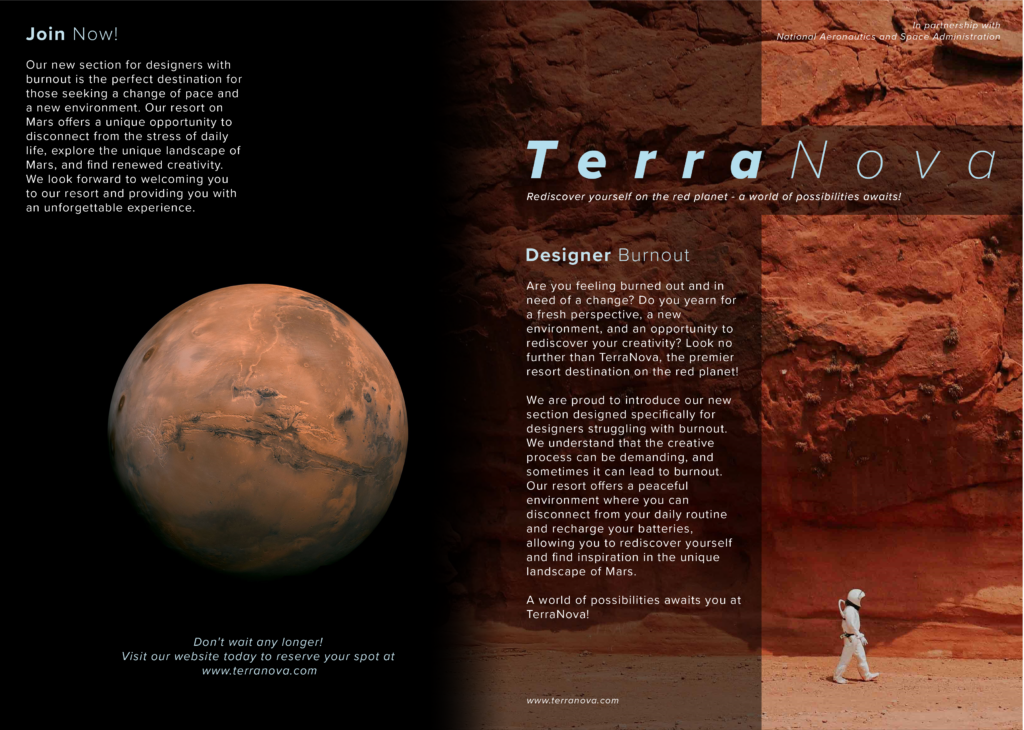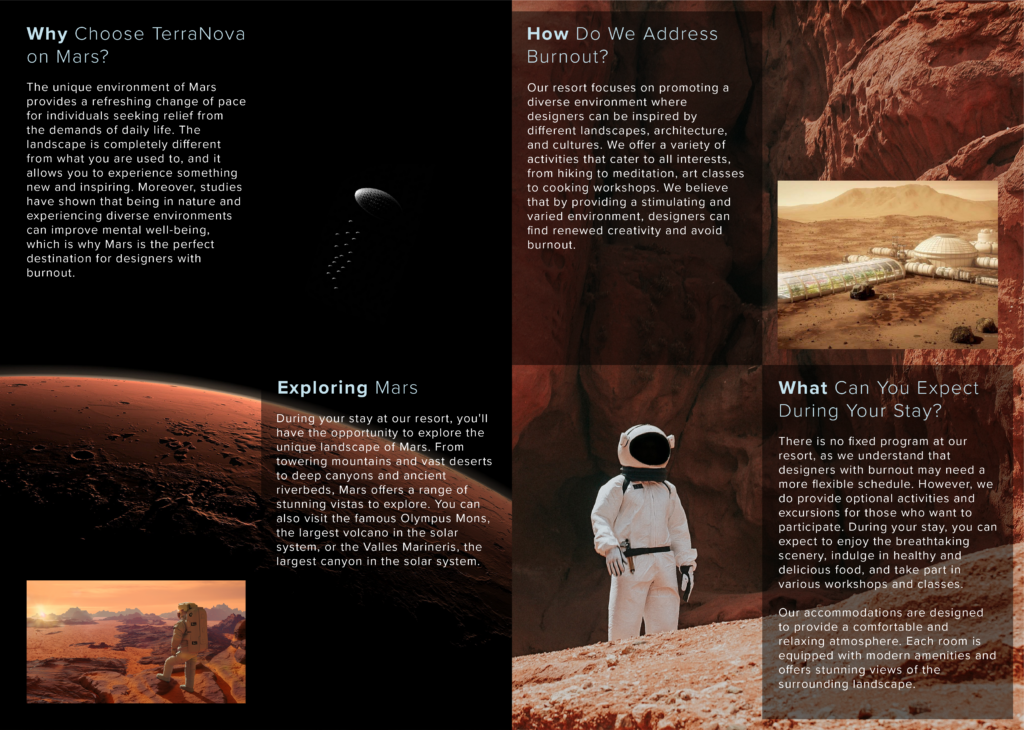TerraNova
Research project + VR experience
How can space exploration and the exploration of Mars contribute to a greater appreciation for the Earth and a greater awareness among people of the necessity to treat our planet with care, using immersive media?
ABSTRACT
This research focuses on how space exploration and the exploration of Mars can contribute to a greater appreciation for Earth and a greater awareness among people of the need to care for our planet. The goal is to make people realize how rare and valuable the nature on our own planet is. Despite being confronted with daily problems such as climate change, people often lack the motivation to actively participate in changes. This research shows that people are not willing to go to Mars because the nature on Earth is more beautiful, but at the same time, they do not do much to preserve this nature because they only focus on short-term changes instead of long-term consequences.
Solo Research Project
Duration: 20 weeks
We explore the history and future of space exploration, look at Mars as a possible destination for colonization, and explore the use of immersive media to simulate the experience of space exploration. The aim is to initiate a broader discussion on increasing appreciation for nature on Earth and promoting awareness of sustainability, resulting in the preservation of our planet for future generations.
You can read the full research in the document provided below.
Dutch version: Exploratie
English version: Currently being translated
CONCLUSION RESEARCH
Thanks to the research on the growth of space exploration, logical and realistic predictions have been made about the future in 2070. Based on these predictions, TerraNova has been developed, including the creation of prototypes. The goal of TerraNova as a company is to convince people to visit a resort on Mars. To make the company realistic and immersive, background information and space exploration predictions have been made. The primary objective of TerraNova is to utilize the role of space exploration and the exploration of Mars to enhance the appreciation for Earth. We now understand why this appreciation is so crucial: climate change caused by human ignorance and the tragedy of the commons phenomenon.
